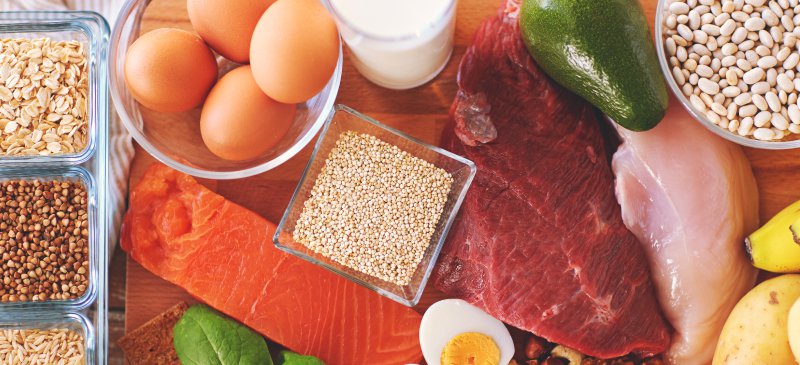SPORTS NUTRITION #2 : PROTEINS
In my last blog on Sports Nutrition, we addressed the topic of carbohydrate macro-nutrients and their importance in providing energy during training and competition. In today's blog, we will focus on protein macro-nutrients and the recommendation of protein intake within an athlete's diet.

Protein is an important component of every cell in the body: hair and nails are made of protein, and your body uses protein to build and repair tissue. It is an important building block of bones, muscles, skin, cartilage and blood. However, your body does not store protein like CHOs and fat, which is why we need less protein in our diets.
Many people believe that extra protein builds more muscles, which is not the case as the only way to build muscle is through exercise. An excess intake of protein can increase the risk of fat gain, dehydration and metabolic organ distress. Dietary proteins can become storage fat, sugar for exercise, or form structures based on hormonal direction and training stresses. When excess protein exists in circulation, the body converts it into CHOs (glucose) for immediate energy or stores it as fat if not burned.
The following guidelines should be used to ensure adequate protein consumption:

It is recommended that protein consumption should be distributed evenly during the day to 15-25 gram portions. And as demonstrated in my earlier blogs, a 3:1 CHO to protein ratio is suggested (so approximately 60g CHO / 20g protein for a person weighing around 60 kg) within 45 minutes post exercise.



